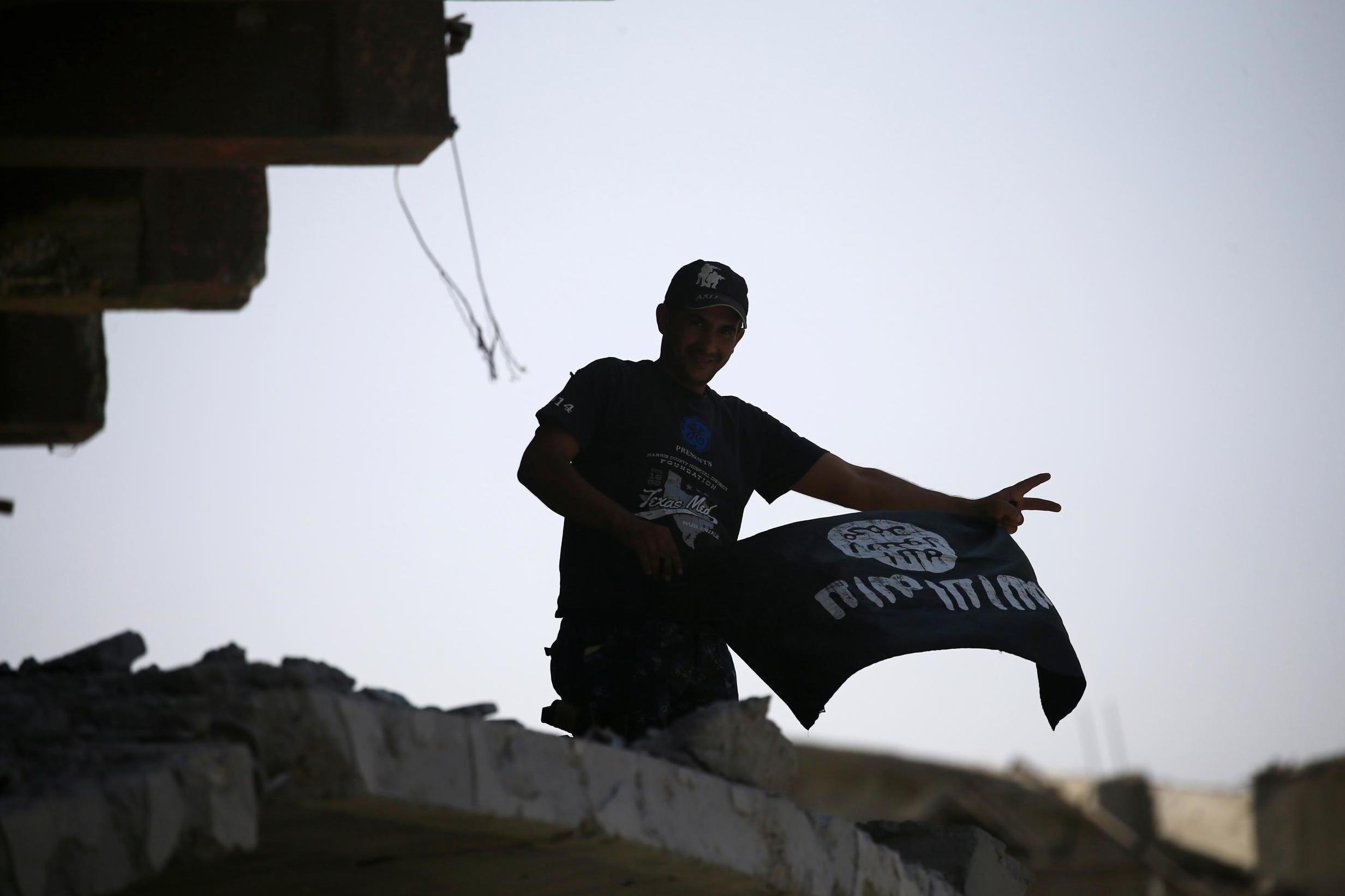Top US commander in Iraq warns of emerging ‘Isis 2.0’
Baghdad government must build bridges with Sunni Muslims to prevent Iraqi society splintering, Lt Gen Stephen Townsend says

Your support helps us to tell the story
From reproductive rights to climate change to Big Tech, The Independent is on the ground when the story is developing. Whether it's investigating the financials of Elon Musk's pro-Trump PAC or producing our latest documentary, 'The A Word', which shines a light on the American women fighting for reproductive rights, we know how important it is to parse out the facts from the messaging.
At such a critical moment in US history, we need reporters on the ground. Your donation allows us to keep sending journalists to speak to both sides of the story.
The Independent is trusted by Americans across the entire political spectrum. And unlike many other quality news outlets, we choose not to lock Americans out of our reporting and analysis with paywalls. We believe quality journalism should be available to everyone, paid for by those who can afford it.
Your support makes all the difference.The leader of the US’ military operations in Iraq has said that despite the fact victory has been declared in the fight to free Mosul from Isis, efforts to defeat the organisation must continue.
The second largest city in Iraq was declared liberated on Sunday, when Prime Minister Haider al-Abadi flew in to congratulate the US-backed coalition of Iraqi fighters on their “historic” victory and the “collapse of the terrorist state of falsehood”.
Almost one million people in total were displaced by Operation Inherent Resolve to free Mosul and thousands of civilians have died in nine months of fighting.
However, the Old City still needs clearing of boobytraps and improvised explosive devices (IEDs) left by retreating fighters and sleeper cells have frequently emerged to attack supposedly safe areas of the city – meaning that the fight against the militants is not over yet.
It is especially important to heal the divides between Iraq’s Shia and minority Sunni populations to prevent the long-standing grievances that led to Isis’ emergence in the first place from reappearing, Lieutenant General Stephen Townsend told the BBC on Monday.
“If we're to keep... Isis 2.0 from emerging, the Iraqi government is going to have to do something pretty significantly different,” he said.
“They're going to have to reach out and reconcile with the Sunni population, and make them feel like their government in Baghdad represents them.”
Even with Isis on the backfoot and retreating to Syria, Iraq remains markedly unstable. Since the US invasion of 2003, society has become increasingly militarised.
The formalisation of Shia militias into the government-aligned Popular Mobilisation Units has stoked fear among Sunni communities in northern Iraq, many of whom have accused the PMU of carrying out ‘revenge’ attacks on their men and boys during Operation Inherent Resolve.
Isis, which practices an extreme form of Sunni Islam, regards Shia Muslims as heretics.
Christian and Yazidi armed units have also emerged to fight Isis since the organisation swept over the border into Iraq in 2014 – and no group trusts another.
Sustained international help will be needed to rebuild people’s lives, aid organisations have warned.
Donor governments have been slow to respond to the UN’s 2017 Humanitarian Response Plan for the region, which only has 43 per cent of the necessary funding to implement any help at all.
Over the border, the battle for Isis’ de facto Syrian capital of Raqqa is already underway.
The fall of both cities will mark the end of Isis as a land-holding force, although analysts expect the group to morph into a full-blown insurgency across the two countries, and for Isis to step up terror attacks around the world in future.
“It’s important to differentiate between Isis as a global ideology and its physical quasi-state project,” Dr Andreas Krieg of King's College London's Department of Defence Studies recently told The Independent.
“Isis is not the root cause of Iraq's problems, it's a symptom of it. And all the local grievances that allowed Isis to flourish in the first place – physical insecurity, disenfranchisement – are not going to go away. There are many in northern Iraq who are not going to cheer and support the Baghdad government now they've been liberated from one form of oppression. They are already bracing for the next one.”
Join our commenting forum
Join thought-provoking conversations, follow other Independent readers and see their replies
Comments